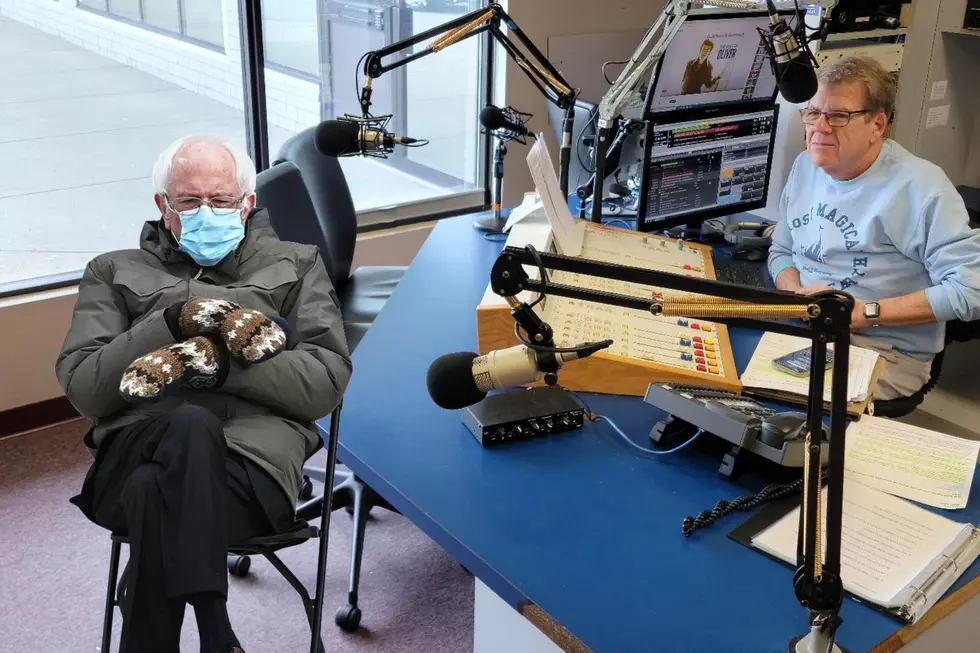
Cruz Wins Iowa Republican Caucus
(Associated Press) - Texas Sen. Ted Cruz, a fiery conservative loathed by his own party's leaders, swept to victory in Iowa's Republican caucuses Monday, overcoming billionaire Donald Trump and Florida Sen. Marco Rubio. Among Democrats, Hillary Clinton and Bernie Sanders were deadlocked in a tight race.
Cruz's victory over Trump was a testament to his massive get-out-the-vote operation in Iowa and the months he spent wooing the state's influential conservative and evangelical leaders. It was also a harsh blow to Trump, the supremely confident real estate mogul who has riled the Republican field for months with controversial statements about women and minorities.
Trump sounded humble in defeat, saying he was "honored" by the support of Iowans. And he vowed to keep up his fight for the Republican nomination.
"We will go on to easily beat Hillary or Bernie or whoever the hell they throw up," Trump told cheering supporters.
Rubio, a favorite of more mainstream Republicans, was challenging Trump for second place and cast his stronger-than-expected finish as a victory.
"We have taken the first step, but an important step, to winning the nomination," Rubio said at a campaign rally in Des Moines. He congratulated Cruz, saying he'd "earned his victory."
The Iowa caucuses kicked off voting in the 2016 presidential race, a tumultuous contest with unexpected candidates challenging both the Republican and Democratic establishments.
Iowa has decidedly mixed results in picking eventual nominees. The past two Republican caucus winners - former Arkansas Gov. Mike Huckabee and former Pennsylvania Sen. Rick Santorum - faded as the race stretched on. But Obama's unexpected 2008 victory was instrumental in his path to the Democratic nomination, easing the anxieties of those who worried the young black senator would struggle to win white voters.
For Clinton supporters, the exceedingly tight race with Sanders was sure to bring back painful memories of her loss to Obama in 2008. Her campaign spent nearly a year building a massive get-out-the-vote operation in Iowa, but confronted a surge in enthusiasm for Sanders.
A self-declared democratic socialist from Vermont, Sanders drew big, youthful crowds across the state and his campaign was hoping for high turnout.
"We will struggle tonight if the voter turnout is low. That's a fact," Sanders told volunteers and supporters ahead of the caucuses.
Cruz modeled his campaign after past Iowa winners, visiting all of the state's 99 counties and courting influential evangelical and conservative leaders. He spent the closing days of the Iowa campaign focused intensely on Rubio, in an unsuccessful attempt to keep the Florida senator from competing for second place. Rubio is viewed by many Republicans as a more mainstream alternative to Trump and Cruz.
Candidates faced an electorate deeply frustrated with Washington. While the economy has improved under President Barack Obama, the recovery has eluded many Americans. New terror threats at home and abroad have increased national security concerns.
Voters at Republican caucuses indicated they were deeply unhappy with the way the federal government is working. Half said they were dissatisfied and 4 in 10 said they were angry, according to surveys conducted by Edison Research for The Associated Press and the television networks.
Six in 10 Democratic caucus-goers wanted a candidate who would continue Obama's policies. Young voters overwhelmingly backed Sanders, with more than 8 in 10 caucus-goers under the age or 30 backing the Vermont senator. Clinton won the majority of voters over age 45.
Both parties were drawing new voters. About 4 in 10 participants in each party said they were caucusing for the first time.
More From WBSM-AM/AM 1420




![Colin Gordon on Bernie Sanders and the Department of Labor [OPINION]](http://townsquare.media/site/518/files/2020/08/GettyImages-1208705094.jpg?w=980&q=75)
![Obama, Biden Knew Trump Was Setup for Collusion [OPINION]](http://townsquare.media/site/518/files/2020/10/GettyImages-501760192.jpg?w=980&q=75)
![A Vote for Biden Is a Vote for Socialism [OPINION]](http://townsquare.media/site/518/files/2020/10/GettyImages-1277616709.jpg?w=980&q=75)
![Democrat Strategy Is to Make Trump a Dictator [OPINION]](http://townsquare.media/site/518/files/2020/09/GettyImages-1228687296.jpg?w=980&q=75)
![Hunter Biden Report Is Devastating to Democrats [OPINION]](http://townsquare.media/site/518/files/2020/09/GettyImages-1267429364.jpg?w=980&q=75)
